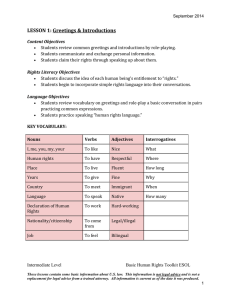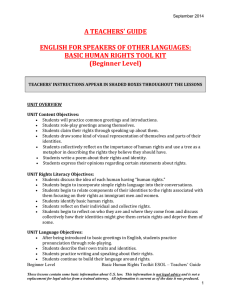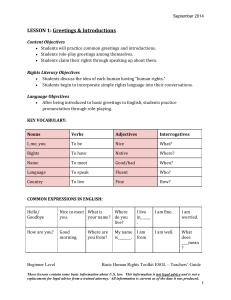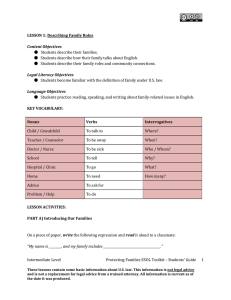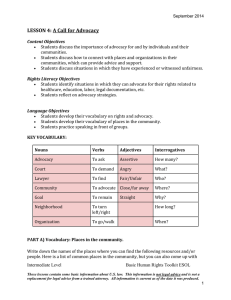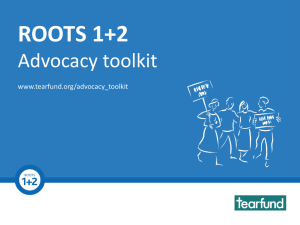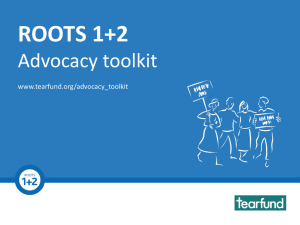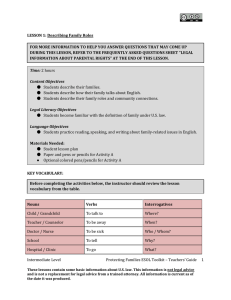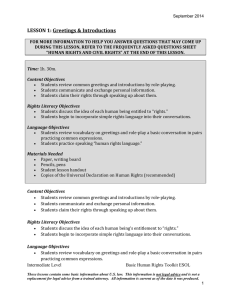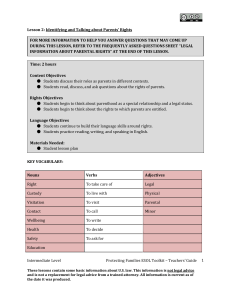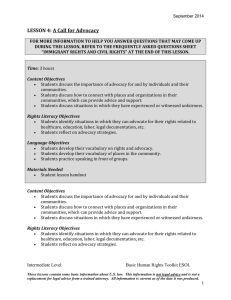A TEACHERS’ GUIDE ENGLISH FOR SPEAKERS OF OTHER LANGUAGES:
advertisement
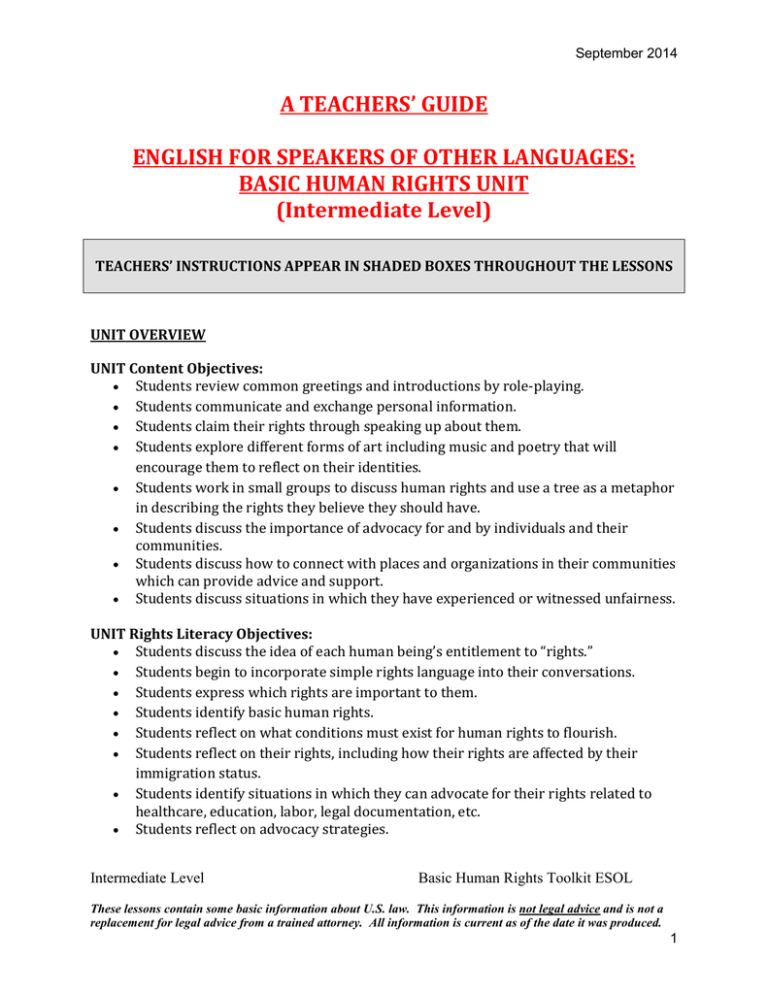
September 2014 A TEACHERS’ GUIDE ENGLISH FOR SPEAKERS OF OTHER LANGUAGES: BASIC HUMAN RIGHTS UNIT (Intermediate Level) TEACHERS’ INSTRUCTIONS APPEAR IN SHADED BOXES THROUGHOUT THE LESSONS UNIT OVERVIEW UNIT Content Objectives: • Students review common greetings and introductions by role-playing. • Students communicate and exchange personal information. • Students claim their rights through speaking up about them. • Students explore different forms of art including music and poetry that will encourage them to reflect on their identities. • Students work in small groups to discuss human rights and use a tree as a metaphor in describing the rights they believe they should have. • Students discuss the importance of advocacy for and by individuals and their communities. • Students discuss how to connect with places and organizations in their communities which can provide advice and support. • Students discuss situations in which they have experienced or witnessed unfairness. UNIT Rights Literacy Objectives: • Students discuss the idea of each human being’s entitlement to “rights.” • Students begin to incorporate simple rights language into their conversations. • Students express which rights are important to them. • Students identify basic human rights. • Students reflect on what conditions must exist for human rights to flourish. • Students reflect on their rights, including how their rights are affected by their immigration status. • Students identify situations in which they can advocate for their rights related to healthcare, education, labor, legal documentation, etc. • Students reflect on advocacy strategies. Intermediate Level Basic Human Rights Toolkit ESOL These lessons contain some basic information about U.S. law. This information is not legal advice and is not a replacement for legal advice from a trained attorney. All information is current as of the date it was produced. 1 September 2014 UNIT Language Objectives: • Students review vocabulary on greetings and role-play a basic conversation in pairs practicing common expressions. • Students practice speaking “human rights language.” • Students learn vocabulary related to people’s identities. • Students practice writing skills by creating their own poems. • Students practice speaking, reading, and writing. • Students develop their vocabulary on rights and advocacy. • Students develop their vocabulary of places in the community. • Students practice speaking in front of groups. UNIT Materials: • Paper, chart paper/writing board, pencils/pens/markers • Student lesson handouts • Copies of the Universal Declaration on Human Rights • Audio of the song: “Lady in Spain” by Ingrid Michaelson UNIT Lessons: • Lesson 1: Greetings & Introductions • Lesson 2: Reflections on Identity through Song and Poem • Lesson 3: What Rights? Drawing a Human Rights Tree • Lesson 4: A Call for Advocacy Intermediate Level Basic Human Rights Toolkit ESOL These lessons contain some basic information about U.S. law. This information is not legal advice and is not a replacement for legal advice from a trained attorney. All information is current as of the date it was produced. 2
